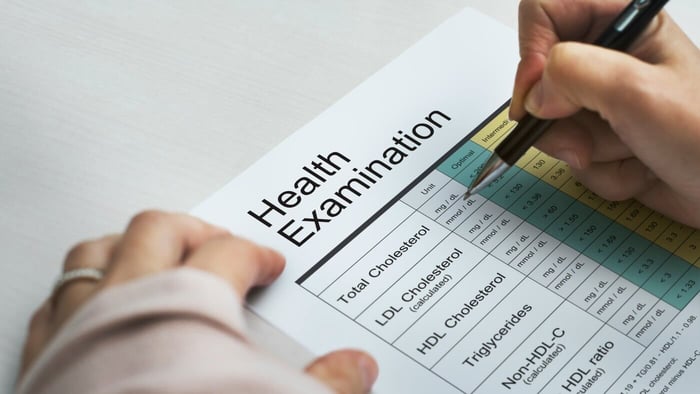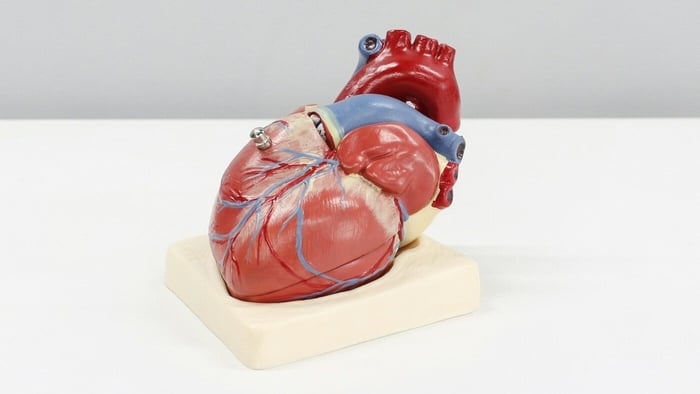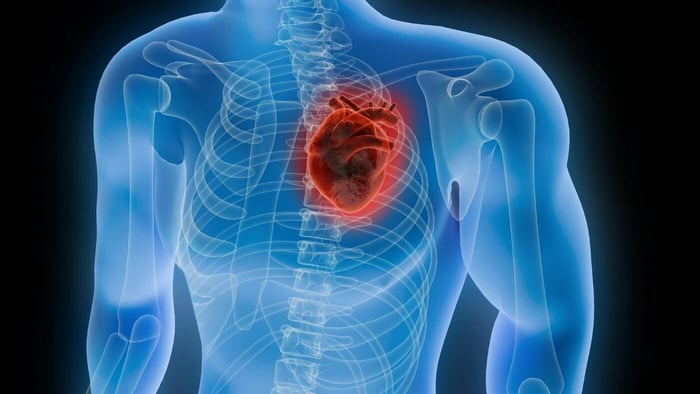Table of Contents
If you recently found out that your LDL cholesterol is too high, you might be looking for fast ways to lower it, especially if you have a history of heart disease.
For years, doctors have focused on keeping levels low with statins instead of promoting holistic strategies. While the whole story about LDL is more nuanced, with additional factors at play for overall heart disease risk, there are natural ways to balance LDL that don’t require medication.
What Is LDL Cholesterol, and Why Does It Matter?
LDL (low-density lipoprotein) is a type of particle that carries cholesterol through your bloodstream. It’s often labeled as “bad cholesterol” because high levels have been linked to plaque buildup along arterial walls. (1)
HDL (high-density lipoprotein) is considered “good cholesterol” because it helps remove excess cholesterol from the bloodstream.
Your body needs both LDL and HDL to support:
Healthy cell membranes
Hormone production
Nutrient absorption
High LDL can contribute to inflammation and arterial damage over time, but oxidative stress, genetics, inflammation, and particle size also play a role.
If you’re feeling the pressure to get on statins due to a family history of high cholesterol, rest assured: there are better, more natural ways to balance those cholesterol numbers.
How to Lower LDL Cholesterol Naturally (And Safely)
Lowering LDL cholesterol doesn’t have to mean jumping straight to medication, no matter what you’re hearing from your healthcare provider. Here are a few science-backed, natural strategies to support healthier LDL levels and overall cardiovascular health without statins.
Try an Anti-Inflammatory Diet
A healthy diet rich in whole, unprocessed foods can support balanced cholesterol levels. It does this by reducing the inflammation that often drives LDL oxidation and plaque formation.
Focus on:
Leafy greens and high-fiber foods (oats, whole grains, legumes)
Healthy fats (olive oil, flaxseed, avocado, nuts)
Fish rich in omega-3 fatty acids
Limit:
Ultra-processed food
Fast food
Refined sugar
The Mediterranean diet is a great place to start. It emphasizes fruits, vegetables, fish rich in omega-3 fatty acids, and legumes (e.g., kidney beans, lentils, and chickpeas). It’s also one of the most studied diets for naturally lowering LDL and promoting cardiovascular wellness. (2)
Fermented foods (e.g., miso, natto, and pickled vegetables) are also known anti-inflammatories that may lower total cholesterol, LDL cholesterol, and triglyceride levels. (3)
Consider Supplements
Heart-healthy supplements can fill in possible nutritional gaps and boost what you’re already doing to balance your cholesterol.
Try to implement:
Fish oil: Rich in omega-3s
Curcumin: Reduces inflammation
Soluble fiber: Binds cholesterol in the gut
Nattokinase: A natural enzyme that supports blood flow
Nattokinase is a powerful, natural enzyme derived from natto — a traditional Japanese dish of fermented soybeans. Extensive research shows that it positively affects circulation and clot-related plaque risks. (4)
Nattokinase helps break down proteins like fibrinogen and fibrin, which are responsible for blood clot formation. A lower risk of blood clots means a lower risk of heart attacks and stroke, more so than targeting cholesterol.
The quality of your nattokinase matters. Toku Flow is our daily nattokinase supplement that combines nattokinase with vitamin K2 and beta-glucan to support balanced cholesterol and a natural approach to improved heart health.
Get Regular Movement
Consistent physical activity, especially moderate-intensity aerobic exercise, can lower LDL, increase HDL, and lower triglycerides. (5) Exercise also improves blood vessel health and helps your body become more efficient at clearing lipids.
Exercise to implement:
Walking, biking, or swimming
Strength training 2x/week
Stretching or yoga with resistance bands
The key is regular, intentional movement.
Prioritize Quality Sleep
Poor sleep raises LDL cholesterol, insulin resistance, and inflammation, which can contribute to heart disease over time. (6) Chronic sleep deprivation may increase oxidative stress, contributing to heart disease risk factors like LDL oxidation and arterial damage.
Tips for better sleep:
Get 7+ hours per night.
Avoid screens before bed.
Address sleep issues like apnea or insomnia.
Manage Chronic Stress
Stress can influence LDL levels and overall cardiovascular health through its effects on cortisol, blood pressure, and systemic inflammation. (7) Chronic stress can also make it tougher to follow lifestyle changes, like sticking to a healthy eating plan or exercise routine.
Incorporate these stress-lowering practices:
Mindfulness or meditation/prayer
Journaling
Spending time outside
Why Lowering LDL Alone Isn’t Enough
Lower cholesterol is a common goal, especially after a high cholesterol reading, but LDL alone isn’t a reliable predictor of cardiovascular disease risk. For example, the size of your LDL particles is far more important.
Smaller, denser LDL particles are more likely to contribute to plaque buildup, while larger, buoyant ones are typically benign. (8) Another important factor is Lipoprotein(a), or Lp(a), a lipid that can mimic LDL in shape but can be even more atherogenic. (9)
Plaque buildup is a complex process driven by inflammation, immune responses, and blood vessel damage. Oxidized LDL can make this process worse, but it’s not the root cause.
That’s why improving inflammation and blood vessel health matters just as much (if not more) than focusing on lowering your LDL-C. A full-picture approach offers better protection than focusing on cholesterol numbers alone.
The Keto Connection: Can LDL Go Up but Health Improve?
It’s common for LDL to go up on a ketogenic or low-carb diet, but that doesn’t always signal a problem. In fact, many people experience this shift alongside improvements in other health markers, especially if they are active and metabolically healthy.
These individuals are known as Lean Mass Hyper-Responders (LMHRs). (10)
They usually have a profile that looks like this:
High LDL
High HDL
Low triglycerides
Stable blood sugar
Even with elevated LDL, that kind of profile doesn’t usually indicate a high risk of plaque buildup.
So, what’s causing the LDL bump? It’s not just from eating more saturated fat (like coconut oil or butter). Instead, it represents a shift in how the body uses energy on a low-carb diet. LMHRs primarily burn fat for fuel. The more fat your body circulates for energy, the more LDL particles your body produces.
In most cases, this increase signals a more efficient fat metabolism — not an increased risk of heart disease. It’s a helpful reminder that heart health isn’t defined by one number.
Smarter Testing for Heart Health
Standard lipid panels can miss the bigger picture. If you’ve already been given the talk on statins to lower elevated LDL, ask your doctor about measuring Apolipoprotein B (ApoB). ApoB is a protein in LDL that offers a better picture of particle count and cardiovascular risk than LDL alone. It is tested by a standard blood draw. (11)
In addition to an ApoB test, here are a few more things to consider testing for, especially if you’re at higher risk for heart issues:
Lp(a): High levels are genetically determined and linked to an increased risk of atherosclerosis and blood clots. A specialized lipid test measures these.
High-Sensitivity C-Reactive Protein (hs-CRP): Elevated protein levels can indicate systemic inflammation. (12) It’s measured with a simple blood test.
Cardiac calcium scoring: This CT scan measures the amount of calcium deposits in the coronary arteries, which is a marker of atherosclerosis. (13)
Blood glucose: Tests measuring your fasting blood sugar or hemoglobin A1C (HbA1C) are good indicators of your risk for diabetes or other metabolic issues. (14)
FAQs
What are the best supplements for lowering LDL cholesterol?
The best supplements for healthy LDL levels include:
Fish oil
Soluble fiber
Curcumin
Plant sterols and plant stanols
Nattokinase
All of these options may have added benefits beyond balanced cholesterol. Nattokinase, for example, is linked to improved circulation and a reduced risk of blood clots.
What are the side effects of statins?
Statins are cholesterol-lowering medications often prescribed as a first defense against elevated LDL. Common side effects include:
Muscle pain or weakness
Fatigue or dizziness
Headaches
Digestive issues (e.g., constipation, bloating, diarrhea)
Sleep problems
Less common but potential side effects include:
Memory problems or brain fog
Flu-like symptoms
Skin problems
Liver inflammation
Increased blood sugar/type 2 diabetes risk
Your risk of side effects increases if you’re on multiple medications, are older, or have a history of kidney or liver disease.
Can calcium supplements interfere with cholesterol treatment?
Studies show calcium may have a similar positive effect on cholesterol as fiber, but excessive amounts can have the opposite effect. (15) Limited studies show that high calcium intake, particularly from supplements, can raise your risk of arterial calcification. (16)
Arterial calcification isn’t directly linked to cholesterol, but that calcification is similar to how oxidized plaques affect your arteries. It’s best to get calcium from dietary sources. If you’re worried about bone health (and calcium’s potential effects on heart health), talk to your doctor before starting a supplement.
What foods increase LDL cholesterol?
Foods high in saturated fats, like red meat and full-fat dairy products, can raise LDL cholesterol in some people. Trans fats — found in processed foods, baked goods, and fried foods — are generally not heart-healthy. The quality of products matters, though.
For example, most margarine is now free of trans fats, but it often contains vegetable and canola oils that lack the beneficial nutrients found in grass-fed butter. Whole-food fats, like butter, can fit into a balanced diet in moderation, and low-fat isn’t always the best thing.
Final Thought
You don’t need to be afraid of elevated LDL, especially if your other biomarkers point to good physical health. If you’d like to target cholesterol as part of a holistic approach to wellness, the most effective way to do so naturally is by following a healthy lifestyle.
That includes a diet rich in healthy fats and whole foods, physical activity, and efforts to reduce stress. Supplements like nattokinase can be a helpful addition as you work toward your goals.
Here at Toku Health, our daily natto supplement is formulated with nattokinase, vitamin K2, and beta-glucan to promote healthy cholesterol levels through a natural, science-backed approach.
Sources
Cardiovascular Disease and the Mediterranean Diet: Insights into Sex-Specific Responses
Nattokinase: A Promising Alternative in Prevention and Treatment of Cardiovascular Diseases
The effects of exercise training on lipid metabolism and coronary heart disease
The Impact of Mental Stress on Cardiovascular Health—Part II
Small Dense Low-Density Lipoprotein as Biomarker for Atherosclerotic Diseases
Lipoprotein(a) Is Markedly More Atherogenic Than LDL: An Apolipoprotein B-Based Genetic Analysis
Apolipoprotein B and Cardiovascular Disease: Biomarker and Potential Therapeutic Target
Coronary Artery Calcium Score - A Reliable Indicator of Coronary Artery Disease?
Significance of HbA1c Test in Diagnosis and Prognosis of Diabetic Patients
Risk of High Dietary Calcium for Arterial Calcification in Older Adults




